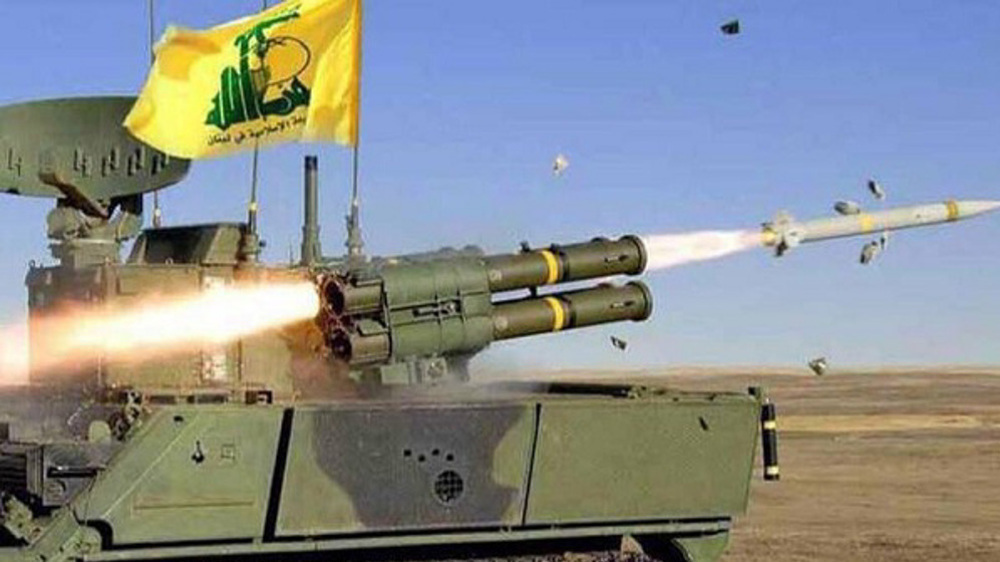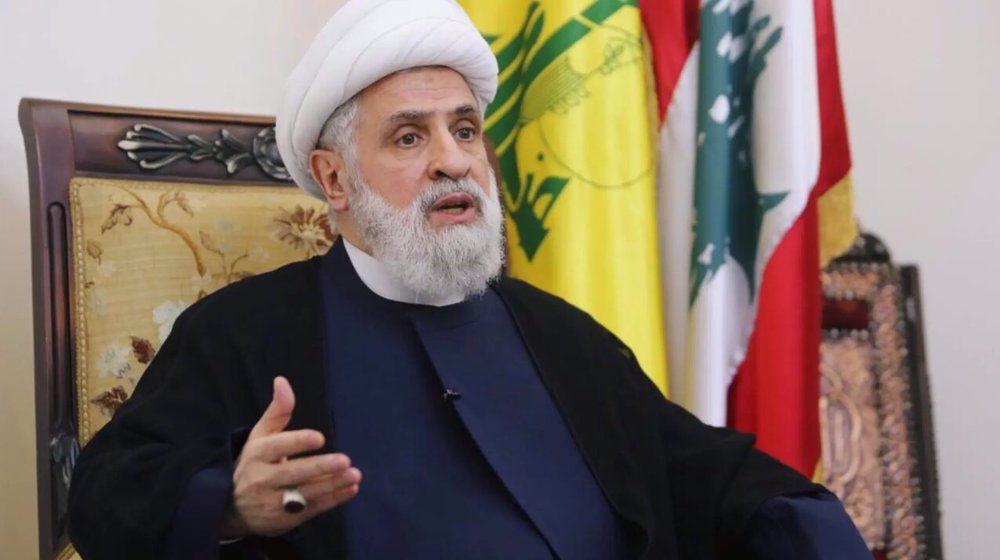Saudi-backed Arabsat ban on al-Manar shameful: Hezbollah
The Lebanese resistance movement, Hezbollah, has slammed as “shameful” a recent move by the Saudi-based satellite communications operator, Arabsat, to stop broadcasting Lebanon’s al-Manar television channel.
In a statement on his Facebook account on Monday, Hezbollah Deputy Secretary General Sheikh Naeem Qassem said the Beirut-based TV channel was punished merely for telling the truth, adding that such pressure indicates that the Al Saud regime “cannot tolerate the image reflected by al-Manar and the resistance.”
He made the comments after al-Manar, which is owned by Hezbollah, said Friday that the Arab Satellite Communications Organization (ASCO) blocked the broadcast of the news channel via the Arabsat satellites after “the company’s offices were moved from Lebanon to Jordan.”
Sheikh Qassem further urged the Saudi kingdom to support the Palestinian cause, “stop killing the Yemenis as well as the Bahrainis and funding terrorist groups” instead of attempting to stifle the voice of resistance.

It is “shameful” that the Riyadh regime cannot tolerate the realities that al-Manar covers, the senior Hezbollah official stressed.
Al-Manar issued a statement following the suspension of its broadcast on Arabsat, slamming the move as an attempt to silence the “voice in the face of oppression.”
It also said “al-Manar is the voice of the Bahrainis, Saudis, Iraqis, Syrians, Tunisians, Egyptians and all the Arabs and Muslims,” vowing to continue its coverage of the developments in the region and the entire Muslim world.
The Lebanese government says it has not been informed of Arabsat’s decision, but it will follow up on the issue through judicial channels.
In a similar move last month, the Lebanese al-Mayadeen television channel was also stopped being broadcast via Arabsat after a guest criticized Saudi Arabia’s handling of a tragic human crush in Mina, near the Saudi city of Mecca, during Hajj rituals in late September.
Saudi Arabia claims nearly 770 people were killed in Mina, but officials with Iran’s Hajj and Pilgrimage Organization say about 4,700 people, including 462 Iranians, lost their lives in the tragedy.
Al-Mayadeen’s Director Ghassan bin Jaddou referred to the channel’s coverage of news concerning Palestinian resistance as well as the Saudi war on Yemen as other reasons why pressure was exerted on al-Mayadeen, slamming Arabsat’s move as a violation of freedom of speech and the rights of media.
Israeli army chief privately warns of cost of new war with Iran: Report
IRGC official: US buildup, psychological tactics aim to 'swallow Iran again'
Iran’s three-man team captures triple gold at UWW ranking series in Tirana
Iranian academic sentenced to 4 years in prison in France for supporting Palestine
VIDEO | Press TV's news headlines
Russia: West seeks to repeat past ‘plunder’ of Iran’s oil
Herzog visits Ethiopia to expand Israeli footprint in Africa
VIDEO | Sunni family's legacy of sacrifice inspires unity, solidarity in Iran















 This makes it easy to access the Press TV website
This makes it easy to access the Press TV website